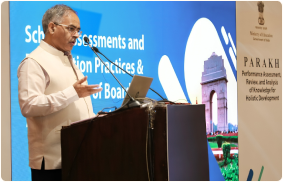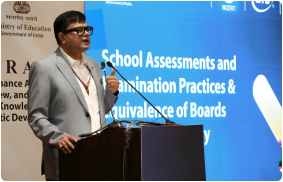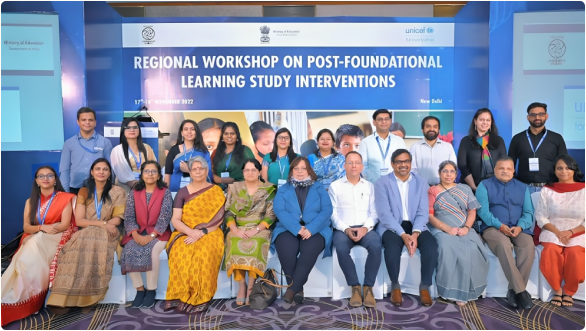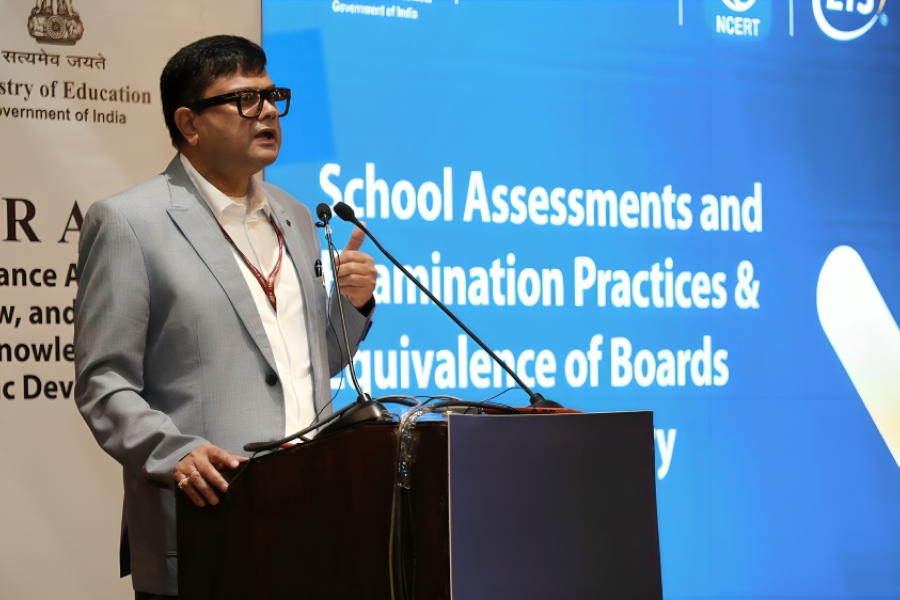Foundational Learning Study (FLS) 2022
A large-scale assessment and benchmarking study for foundational learning titled Foundational Learning Study (FLS) was administered from 23rd-26th March, 2022 across India. The aim of the study was to draw a first-hand understanding of the foundational learning levels of Grade 3 students. FLS was conducted in 20 languages which are being used as a medium of instruction in respective state/UTs covering - Assamese, Bengali, Bodo, English, Garo, Gujarati, Hindi, Kannada, Khasi, Konkani, Malayalam, Manipuri, Marathi, Mizo, Nepali, Odia, Punjabi, Tamil, Telugu, and Urdu. Foundational Learning Study covered approximately 86,000 grade 3 students from 10,000 schools. The Study sample included state government schools, government-aided schools, private recognised and central government schools. More than 18,000 teachers participated in the survey. Three questionnaires for school head teachers, teachers and students were also administered as a part of the study to obtain background information, vis-à-vis the learning levels of children.
Ministry of Education launched the National Initiative for Proficiency in Reading with Understanding and Numeracy (NIPUN) Bharat in July 2021. NIPUN was announced as a national mission to enable all children at the end of Grade 3 to attain foundational skills by the year 2026-2027. As a crucial step towards strengthening efforts for Foundational Literacy and Numeracy (FLN), a large-scale Foundational Learning Study (FLS) has been undertaken by National Council of Educational Research and Training (NCERT) in March 2022.



Objectives of the study
Assess learning outcomes: The study aims to provide reliable and valid data about Grade 3 students to know what they are able to do in foundational literacy and numeracy and the extent of learning outcomes being achieved.
Set baseline for NIPUN: The data derived from the FLS Study would help in establishing a baseline for the NIPUN Bharat mission. Set benchmarks: The Study also aims to establish reading proficiency benchmarks for fluency and comprehension for each of the languages (20 in number) being assessed under the study and proficiency benchmarks for numeracy.
Report on SDG: This study will also provide data to report on SDG 4.1.1 indicators at the global level.
Coverage of the Study and Sample: More approx. 86,000 grade 3 students from 10,000 schools were covered. The Study sample included state government schools, government aided schools, private recognised and central government schools.
FLS was conducted in 20 languages which are being used as a medium of instruction in various state/UTs covering - Assamese, Bengali, Bodo, English, Garo, Gujarati, Hindi, Kannada, Khasi, Konkani, Malayalam, Manipuri, Marathi, Mizo, Nepali, Odia, Punjabi, Tamil, Telugu and Urdu.
Study Methodology: The FLS Study is a school-based performance assessment. Selected sample of children from grade 3 were assessed by a test administrator in a one-on-one setting where each child responded to a set of questions administered orally. Several foundational literacy skills including oral language comprehension, phonological awareness, decoding, reading comprehension, oral reading fluency with comprehension were assessed as part of assessment. For foundational numeracy, number identification & comparison, number operations, multiplication and division facts, measurement, fractions, patterns, and data handling are included.
Study Achievements: Psychometric analysis of the data was carried out. Benchmarks for oral reading fluency and comprehension in 20 languages and benchmarks for numeracy weres established. National report card, State report card and technical reports would be prepared based on the FLS and as a first step preliminary report on benchmark setting for oral reading fluency and reading comprehension in 20 languages has been prepared.
 Government of India
Government of India More
More

